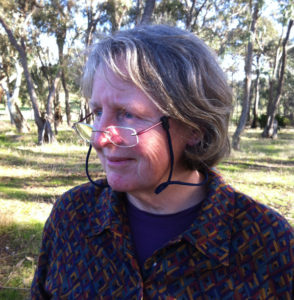Home

Deborah Wardle is a writer of fiction and nonfiction, with a focus on how to bring the voices of the natural world, particularly aquifers, alive. Her work illuminates the ways climate writing, of various genres, are an essential means of understanding human relationships with the natural world.
*** NEW NATURE WRITING 2026 – 4 WORKSHOPS – Wednesdays, 5.30pm to 7.30pm. 8 April to 29 April at NEWSTEAD ARTS HUB. For writers beginning to consider New Nature Writing.
Bookings through Newstead Arts Hub Site or Humanitix: Link to Booking on Humanitix CLICK HERE TO BOOK
More information on Newtead Arst Hub website
Level 2 Workshops in New Nature Writing: 4 workshops from Monday 21 September – to Monday 12 October: Details to be announced soon.
Recent Publications:
2024 ‘Groundwater’ in On This Ground: Best Australian Nature Writing (Ed) Dave Witty. Monash University Press. 2024.
2024 (Editor) Understanding Aquifers through Groundwater Stories. Deborah Wardle Books. Hard copies available for $30 by contacting Deborah Wardle and on this website under the ebooks tab.
2024 “Love Letters” in Meanjin Winter 2024. Short Fiction. A story of the Australian Marriage Equality Plebiscite (2017) and intergenerational love.
2023: Subterranean Imaginaries and Groundwater Narratives. Published by Routledge, Environmental Humanities series.
https://www.routledge.com/Subterranean-Imaginaries-and-Groundwater-Narratives/Wardle/p/book/9781032218816
This book interrogates the problems of how and why largely unseen matter, in this case groundwater, has found limited expression in climate fiction. It explores key considerations for writing groundwater narratives in the Anthropocene.
The book investigates a unique selection of climate fiction alongside an exploration of hydrosocial environmental humanities through a focus on groundwater and groundwater narratives. Providing eco-critical analysis, with creative fiction and non-fiction excerpts interwoven throughout, and drawing on Indigenous Australian and Australian settler novels and poems alongside European, American and Japanese texts, the book illuminates the processes of ‘storying with’ subterranean waters – their facts, uncertainties, potencies and vulnerabilities. In a time when the water crisis in an Australian and worldwide context is escalating in response to global warming, giving voice to the complexities of groundwater extraction and pollution is vital. Drawing from non-representational, posthumanist and feminist perspectives, the book provides an important contribution to transnational, comparative climate fiction analysis, enabling an interdisciplinary exchange between hydrogeological science and the eco-humanities.
This book is an engaging read for scholars and students in creative writing, environmental humanities, cultural and post-colonial studies, Australian studies, and eco-critical literary studies. Writers and thinkers addressing the problems of the Anthropocene are called to pay attention to the importance of subterranean imaginaries and groundwater narratives.
Please encourage your local or university library to purchase copies. Flyer_ Author Wardle 20%
Publishing details available by clicking here.
2022: (Editors) Wardle, D., Van Loon J., Taylor, S., Rendle-Short, F., Murray, P., & Carlin, D., A to Z of Creative Writing Methods. Bloomsbury. See the link: https://www.bloomsbury.com/au/a-to-z-of-creative-writing-methods-9781350184237/ to order copies. Fifty nine short essays from around the world addressing a diverse and innovative list of creative writing methods. Ideal for established and beginner writers, and for scholars in the Creative Writing field.